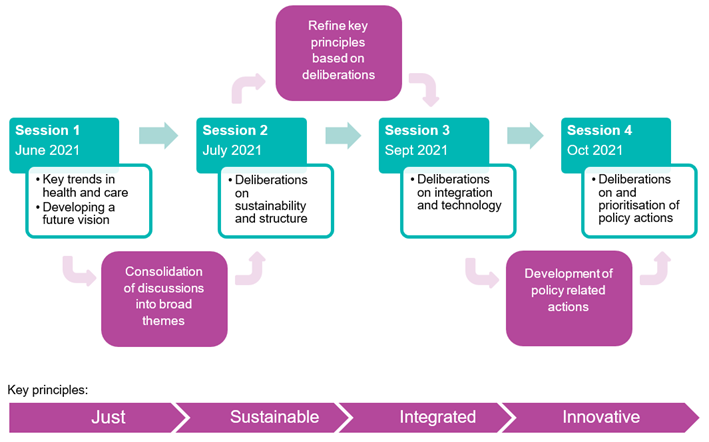Public attitudes to the NHS and social care


In 2021, the Institute for Public Policy Research (IPPR) commissioned NatCen’s Centre for Deliberation (CfD) to deliver a deliberative assembly with health and care workers to create a future vision for the health and care workforce in the UK.
Workforce crises in the NHS happen around every 20 years and solutions are often insufficient for addressing the long-established, structural drivers behind such crises. To identify long-term solutions that support the health and care workforce to be more resilient to crises, the IPPR commissioned NatCen’s CfD to conduct a deliberative assembly with 15 health and care workers. Across four workshops assembly members used their experiences and perspectives to agree future policy priorities for the health and care workforce.
Assembly members agreed four key principles that could make the health and care workforce is more resilient to future crises:
The CfD held four assembly sessions with health and care professionals from a range of different backgrounds. Session one introduced to participants the concept of a future vision and key trends in the health and care workforce, which provided a basis for discussions around what the health and care system could look like in 2035. The themes which emerged from session one provided the framework for discussions in sessions two and three, where participants explored the emergent themes in more detail and considered how they might be achieved. CfD and IPPR researchers then worked to refine the themes into a set of policy related actions. Participants then deliberated on and prioritised these policy actions in the fourth and final session.

Receive a regular update, sent directly to your inbox, with a summary of our current events, research, blogs and comment.
Subscribe